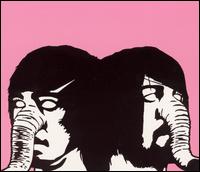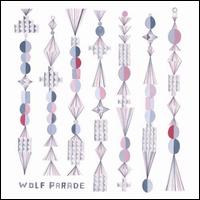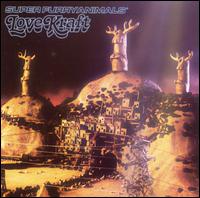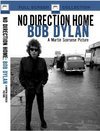The first thing you hear on
The Modern Dance is high pitched feedback approximating something like a dog whistle. Automatically you know something is afoot. This single line of feedback rides itself out for twenty seconds while a couple of notes are plucked on a guitar in the background, and then it is overtaken by some 1950's-Rock n' Roll-sock hop chords that suddenly break into a whole song. The first song off
The Modern Dance is called "Non-Alignment Pact," and the first time you hear it I swear you'll feel the top layer of your brain peel away.
Okay, enough hyperbole.
Punk music is probably the most difficult thing in the world to define. If you ask anyone what it was you'll get answers across the musical spectrum. Everything from the Ramones to Brian Eno are considered punk by some people. The easy way out of this little problem to say "punk music was underground rock of the mid to late 1970's." This just begs the question, what the fuck was it that made it "punk"? Others use the good old technique of hindsight, and throw punk into one mason jar, new wave into another, and continue to amputate no-wave, avant garde, glam rock, proto-punk, etc. Despite being obnoxious it also isn't totally accurate. After all, the Talking Heads were playing CBGB right along with the Ramones, so it's not like the punk audience showed up for the Ramones' set then left to make room for the new wavers. It was all one big mixed up mess. The closest thing to an all encompassing definition of punk is "reactionary music." Not terribly eloquent.
If you ask me the closest definition of punk is the first half-minute of "Non-Alignment Pact." The first half of punk is represented in the feedback and sparse guitar notes that represent the avant garde aspect of punk: the Brian Enos, Talking Heads, Televisions, DNAs, Wires, and the like. These are the people that were interested in tearing down rock and roll structures. They wanted to see where rock music could go.
The other half of punk is represented in the classic rock 'n roll chords that carry the rest of the song. These are the bands that were sick and tired of power ballads and just wanted to bang out a taunt burst of energy in under three minutes. These are your Ramones, Sex Pistols, The Damneds, The Germs, etc. You know, the ones who have eclipsed the punk legacy. These bands were looking to rediscover rock music's primitive roots.
Of course, many of these bands have one hand in each tradition. Adam and the Ants, The Talking Heads, and Bow Wow Wow all dabbled in African beats in order to find rock music's deep primitivism. Like the second half of punk they were looking to rediscover the primitive
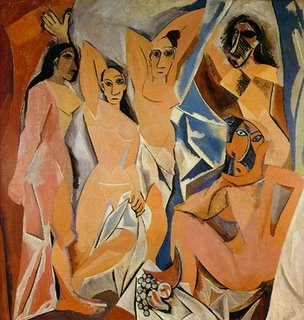
roots of rock. However, all three bands used this tradition to forge something forward thinking and completely new. Similarly, Pablo Picasso used African art in his paintings in order to make art that was leaps and bounds ahead of his predecessors. Critics called his work "primitivism" (and not always in a nice way), but in fact it wasn't the complexity of his brush stroke that made his work great, instead it was the complexity of his imagination. Punk rockers followed a similar ideal, and prized imagination over complex solos and seeing how many tracks you can use on a single song.
If you really think about it, even the Ramones were avant garde in a way. After years of rock musicians seeing how long they can draw out a guitar solo here are a few fifties obsessed kids looking to go the complete opposite direction. They want to unearth what made rock music great in the first place, and they didn't do that by merely repackaging old sounds (plenty of musicians these days could learn from them in that regard), but rather by realizing that because the times have changed to recapture the feeling of old rock and roll they had to change the sound of old rock and roll. If that isn't forward thinking I don't know what is. While the Ramones were more primitivism and less avant garde, and someone like The Talking Heads were probably more avant garde and less primitivism, both had a similar view on music. They needed to look t
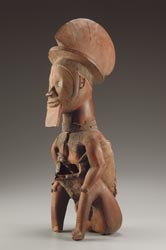
owards the past in order to make a successful leap towards the future. Inevitably I'm brought to the image of Janus-- a single head with two faces looking in the opposite directions at the same time.
All right, back to Pere Ubu.
Pere Ubu are a bunch of boys from my hometown of Cleveland. A lot of people would be surprised that Cleveland had a vibrant punk scene in the late seventies. In the States, Cleveland was second only to New York as being the most important city for punk's birth (not counting Detroit's proto-punk rockers, of course). Some other great punkers from Cleveland: Electric Eels, Dead Boys, and Rocket from the Tombs.
The point of my digression is that Pere Ubu is a perfect incarnation of this primitive rock and roll meets avant garde artistry. The front cover tells a lot about what's on the inside. It's a factory worker doing a pirouette in ballet shoes and with the smoke spewing factories of Cleveland serving as background. It's incredibly surreal, and it's also a perfect image to convey the high brow meets low brow attitude of Pere Ubu. The name itself is taken in part from a 19th century French play that I'm sure no more than ten people in the United States has read (I'm not one of them).
The aforementioned "Non-Alignment Pact" is the most conventional song off the album, but even when they get really far out there you can find elements that tie them down to their primitivist traditions. "Laughing," for example, starts out with what sounds like a bagpipe dying for a couple minutes, but breaks into full out rock attitude. The song is hardly conventional, but Dave Thomas, the lead singer, throw in some old rock and blues idioms with lines like, "My baby said if the Devil comes, shoot him with a gun."
"Street Waves" continues the "Non-Alignment Pact's" repackaging of old rock and roll sounds complete with a fast and tight guitar solo. This is followed by my favorite song off the album, "Chinese Radiation." Easily one of my favorite songs of all time, it sounds like Pere Ubu is taking a cue from The Who's mini-epics, but this time it's even more compact and much more fucked up. It starts out with some clean guitar playing along with Dave Thomas's vocals, then continues into the second movement where the song picks up speed accompanied by the sound of crowds cheering in the background, until it finally eases off into a refrain of the first verse but this time with a piano backing Dave Thomas instead of the guitar. Looking back at my description I realize it's completely inadequate, but once you listen to the song a few times I guarantee you'll be hooked.
More often than not the most bizarre element of Pere Ubu's songs are Dave Tomas's vocals. He sounds as if he's flexing every muscle to just to push out the lyrics (or the yelps, grunts, or whatever the hell noise he decides to make), and when he does they sound contorted and crippled.
The songs generally de-evolve as the album progresses, and the most starkly apocalyptic moments come in the six-minutes of "Sentimental Journey." Some people would be hard pressed to call this a song, just like people had a difficult time calling
Naked Lunch a novel. It's really just a collage of found sounds and instruments of all sorts shrieking. Dave Thomas makes odd noises or says odd things, and if it isn't spontaneous then it's a pretty good approximation. It sounds like they broke a lot of stuff making this song. It has even less structure than stuff found on The Velvet Underground's debut. This is the most avant garde moment on the entire album.
The final song, however, reclaims the primitive side of rock. The closing number, "Humor Me," is a faux-reggae number that has Dave Thomas yelling "It's just a joke mon" in a fake patois. This is a perfect reflection of punk music's hidden fetish with native born music. Perhaps punk was so interested in ska and reggae because it had a kind of home grown legitimacy that their post-modern society had striped from then. Then again, that's an idea for another time. "Humor Me" sports one of the best solos of all time. It's not the most difficult (even compared to the others on this album), but it certainly has the most emotion. For such a strange thirty-six minute journey that single solo was exactly what was needed to release all of the pent up anxiety the album builds.
The fact that Pere Ubu isn't considered one of rock music's greats is a Milosevic sized tragedy. I don't even think they've been inducted into Cleveland's Rock and Roll Hall of Fame. Yeah, I know, they're not exactly Lovin' Spoonful as far as non-offensive radio hits, but where's the hometown love? In my opinion they are right next to The Clash as far as being the greatest punk band from the seventies. The inequity that Pere Ubu has not catapulted above The Damned, Joy Division, Buzzcocks, Patti Smith, (all great bands) and the rest of the punk pack in terms of popularity is evidence enough that God does not exist. Of course, if you listen to Pere Ubu and haven't at least questioned God's existence in an existentialist query, then you haven't listened to Pere Ubu.




